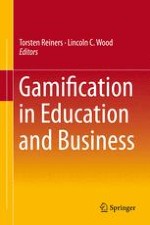2015 | OriginalPaper | Buchkapitel
27. Gamification and Law
On the Legal Implications of Using Gamified Elements
verfasst von : Kai Erenli
Erschienen in: Gamification in Education and Business
Aktivieren Sie unsere intelligente Suche, um passende Fachinhalte oder Patente zu finden.
Wählen Sie Textabschnitte aus um mit Künstlicher Intelligenz passenden Patente zu finden. powered by
Markieren Sie Textabschnitte, um KI-gestützt weitere passende Inhalte zu finden. powered by
